Innovation and research completed on Manitoba farms will provide insight to support decision making for Canada’s agricultural best practices and policies affecting climate change, water quality.
Manitoba Association of Watersheds is pleased to announce the new Living Lab – Manitoba (LL-MB) project, delivered through watershed districts and in collaboration with a highly-engaged network of local agricultural producers, industry groups, Indigenous and nonprofit groups, and Agriculture and Agri-Food Canada (AAFC) scientists.
LL-MB is part of AAFC’s Agricultural Climate Solutions – Living Labs program, which is a collaborative approach to agricultural innovation dedicated to combating climate change. It brings together farmers, scientists, and other sector partners to co-develop, test, and monitor new practices and technologies in a real-life context, accelerating adoption on the farm. LL-MB aims to increase carbon sequestration and decrease greenhouse gas emissions through enhanced land management and economically effective farming practices.
By grounding this collaborative program within Manitoba’s watershed districts, MAW will work with partners to apply a broader lens to beneficial management practices (BMP) in support of established and future integrated watershed management plans throughout the province. Beneficial management practices that are rooted in protection and preservation of land and water health have significant impact on protecting water and land through innovative research projects and integrated watershed management.
Living lab projects, like soil mapping to support an increased understanding of carbon sequestration in Manitoba, will inform the development of new and innovative agricultural practices and will provide a solid foundation for further policy planning surrounding agricultural production.
“BMPs that prioritize carbon sequestration and reduction of greenhouse gas emissions have a natural connection to improving soil health and water quality” says Garry Wasylowksi, MAW Board Chair. “It’s a natural fit to ground this type of research within watershed districts, as it so clearly aligns with the mandates districts continue to promote and fulfill.”
As a part of the project’s governance model, MAW has worked with Indigenous partners to form an Indigenous Partners Committee, to ensure that the voices and needs to Indigenous partners are elevated through a self-governed committee. MAW and its watershed district members are committed to collaboration and positive working relationships with Indigenous farmers and landowners.
“Collaboration with farmers and researchers, through their local watershed districts, brings tremendous value to Manitoba farmers. Practices developed on-farm, and shared within communities, is a remarkably effective way to increase adoption of beneficial management practices. Our hope is that innovative practices developed through LL-MB will lead to healthier watersheds through an increase in sustainable agricultural practices and reduced greenhouse gas emissions.”
– Garry Wasylowski; Board Chair, Manitoba Association of Watersheds
“Farmers are natural innovators and by partnering with researchers, they can help develop new solutions to build resilience to the challenges of climate change. Manitoba’s rich farming history has laid the groundwork for this exciting new project and it will drive innovation through collaboration between farmers, Indigenous communities, scientists and other sector partners.”
- The Honourable Lawrence MacAulay, Minister of Agriculture and Agri-Food

